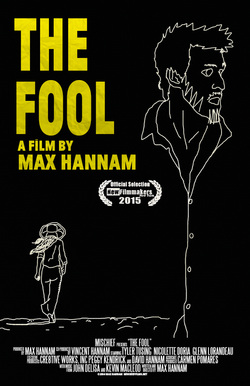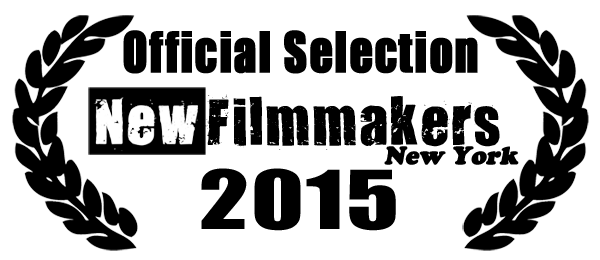The Fool
Trailer
Production Photos
Director's Statement The Fool was an experiment on my part to make a film as subjective as possible, to an extreme. In order to achieve that, there are extreme close-ups peppered throughout the film as well as a wandering camera to simulate how much a human's eye will get distracted and be drawn to movements, sound, a pleasing object, etc. The camera is the audience's eye, so I thought it should behave like a real one. This will often force the audience to assess value to everything being shown, so they have to constantly ask themselves "Is this significant or not?" What they think is important may or may not turn out to be so, and that's exactly what I want. It all ties in with the central theme of the film, Perception vs Reality (which is something both the audience and the characters must address).
This heightened subjectivity is even ingrained in the script. I left everything out that the protagonist wouldn't have known or experienced to the point where certain things seem to happen randomly for no reason, just like we perceive certain events in our own lives as happening at random. I mean everyone's had that feeling of being blind sided or the floor falling out from under you, just when things were going well. We come up with our own explanations for why this or that happens but what we fail (or choose not) to realize is that reality is quite different from what we perceive it to be and that your explanation for what/why things are happening will often be different from someone else's explanation. It's all meant to show that in the grand scale of the universe, we know absolutely nothing. Again, Perception vs Reality. |
About the DirectorEducated in film at the University of Central Florida, Max Hannam started out creating two short web series (the comedic SWAG Series, and The DreamLands, a collection of horror shorts), eventually making his way to short films, with his last short film Malentendido premiering at the Florida Student Art Festival. Along with filmmaking, Max enjoys writing about film, both critiquing individual works and exploring film theory in general.
|
Director Q&A
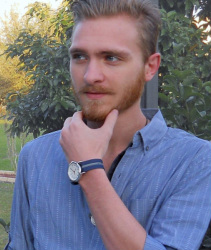 Dir. Max Hannam
Dir. Max Hannam
What inspired you to film this movie the way it was filmed?
A major theme of the film is the difference between perception and reality, so I decided to include the audience in that by having extreme close-ups peppered throughout the film. The close-ups force the audience to assess value to what is being shown, so they have to constantly ask themselves "Is this significant or not?" What they think is important may turn out to not be, and that's what I want to happen. I chose to explore this idea of perception vs reality through the lens of a relationship (which is a situation riddled with false perceptions of what is really going on).
How long did filming take?
It was an 8 day shoot, spread over 3 weeks. The daily schedule was super relaxed, only filming 2-4 hours a day. Working at that pace is such a luxury and it's probably the only why I could have handled all the pressure that came with directing The Fool since it is by far the longest film I've done, the next longest being only 8 minutes (with all of my other work being 2-4 minutes).
Even at that relaxing pace, we all felt an urgency to get the film finished, myself more than anyone since the day after the last scheduled shooting day I was to be permanently moving to New York. This was the main factor when all the cast and crew decided to combine the last two shooting days into 1 day (originally we had 9 days scheduled to shoot). That last day was truly a long one. I think I drove about 200 miles that day alone (driving from Orlando to Melbourne Beach to Holopaw and then back to Orlando). I also forget my wallet, which nearly ruined the whole production that day since we were running EXTREMELY low on gas for the two cars and nobody else had much money on them. We also realized this after having put excessive amounts of money into the parking meters at the beach (we wanted to have plenty of time with no hassle you see).
A Writer/Director's film is often something deeply personal, could that be said for The FooL?
Surprisingly, not too much of the themes or plot were that personal. I wanted to deal with universal experiences and emotions, I mean everyone's had that feeling of being blind-sided or the floor falling out from under you, just when things were going well.
What's actually personal to me about the film was that I treated it has a farewell letter to Florida. I was born and raised in central Florida, and I even went to the University of Central Florida where I studied film. I knew that I would have to leave my home state when I graduated (in order to pursue my career in film), so I decided I would use as much of the Florida locals and landscapes as I could. So now in the film, you'll see the streets of Orlando, the far reaching pastures/fields of Holopaw and the classic shoreline of Melbourne Beach. Whenever I get a little home sick now that I live in Brooklyn, NY, I can always watch The Fool and be reminded of home.
A major theme of the film is the difference between perception and reality, so I decided to include the audience in that by having extreme close-ups peppered throughout the film. The close-ups force the audience to assess value to what is being shown, so they have to constantly ask themselves "Is this significant or not?" What they think is important may turn out to not be, and that's what I want to happen. I chose to explore this idea of perception vs reality through the lens of a relationship (which is a situation riddled with false perceptions of what is really going on).
How long did filming take?
It was an 8 day shoot, spread over 3 weeks. The daily schedule was super relaxed, only filming 2-4 hours a day. Working at that pace is such a luxury and it's probably the only why I could have handled all the pressure that came with directing The Fool since it is by far the longest film I've done, the next longest being only 8 minutes (with all of my other work being 2-4 minutes).
Even at that relaxing pace, we all felt an urgency to get the film finished, myself more than anyone since the day after the last scheduled shooting day I was to be permanently moving to New York. This was the main factor when all the cast and crew decided to combine the last two shooting days into 1 day (originally we had 9 days scheduled to shoot). That last day was truly a long one. I think I drove about 200 miles that day alone (driving from Orlando to Melbourne Beach to Holopaw and then back to Orlando). I also forget my wallet, which nearly ruined the whole production that day since we were running EXTREMELY low on gas for the two cars and nobody else had much money on them. We also realized this after having put excessive amounts of money into the parking meters at the beach (we wanted to have plenty of time with no hassle you see).
A Writer/Director's film is often something deeply personal, could that be said for The FooL?
Surprisingly, not too much of the themes or plot were that personal. I wanted to deal with universal experiences and emotions, I mean everyone's had that feeling of being blind-sided or the floor falling out from under you, just when things were going well.
What's actually personal to me about the film was that I treated it has a farewell letter to Florida. I was born and raised in central Florida, and I even went to the University of Central Florida where I studied film. I knew that I would have to leave my home state when I graduated (in order to pursue my career in film), so I decided I would use as much of the Florida locals and landscapes as I could. So now in the film, you'll see the streets of Orlando, the far reaching pastures/fields of Holopaw and the classic shoreline of Melbourne Beach. Whenever I get a little home sick now that I live in Brooklyn, NY, I can always watch The Fool and be reminded of home.
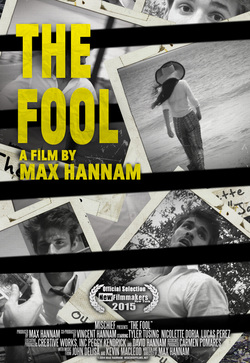
What was the most difficult thing about directing this film?
I wish I could say it was the lack of crew (which it kind of was, working with a crew of 1 or 2 is insane), but honestly, it was probably just making sure it was all worth it. The moment production starts, you start to second guess all the work you had done in pre-production. Is this really the angle I want? Is the dialogue too cryptic? Will my vision even be worth seeing? All those nagging questions can ruin a shoot, so I had to just trust myself that the script and storyboards (and everything else) was solid. It's like bungee jumping, you can't check the chord a thousand times or else you won't jump.
Where did the inspiration for The FooL come from?
The themes of the film come straight from Camus and his philosophy of the Absurd. Ever since I read Camus's The Stranger and Beckett's Waiting for Godot, I have been fascinated by the thought of man being alone in a meaningless universe and that we should search for personal reasons to live as opposed to a universal meaning of life.
Much of the pacing and dynamics of the film were also inspired by the fluidity of Jazz. I was really drawn to the idea of taking another medium and applying its concepts to film.
I'm sure a micro-budget restricts you as a filmmaker in many ways, what was your biggest challenge with that?
My biggest challenge was definitely my lack of crew. Most days I only had 1 or 2 crew members, so it was beyond bare bones filmmaking. To circumvent this potential hassle, I decided to only schedule a few scenes a day, to make up for the fact that setting up shots was going to take way longer. When production wrapped, I found that I actually enjoyed the challenge of a minimal crew and I think the film even benefitted from the mobility we were able to add to the scenes.
I wish I could say it was the lack of crew (which it kind of was, working with a crew of 1 or 2 is insane), but honestly, it was probably just making sure it was all worth it. The moment production starts, you start to second guess all the work you had done in pre-production. Is this really the angle I want? Is the dialogue too cryptic? Will my vision even be worth seeing? All those nagging questions can ruin a shoot, so I had to just trust myself that the script and storyboards (and everything else) was solid. It's like bungee jumping, you can't check the chord a thousand times or else you won't jump.
Where did the inspiration for The FooL come from?
The themes of the film come straight from Camus and his philosophy of the Absurd. Ever since I read Camus's The Stranger and Beckett's Waiting for Godot, I have been fascinated by the thought of man being alone in a meaningless universe and that we should search for personal reasons to live as opposed to a universal meaning of life.
Much of the pacing and dynamics of the film were also inspired by the fluidity of Jazz. I was really drawn to the idea of taking another medium and applying its concepts to film.
I'm sure a micro-budget restricts you as a filmmaker in many ways, what was your biggest challenge with that?
My biggest challenge was definitely my lack of crew. Most days I only had 1 or 2 crew members, so it was beyond bare bones filmmaking. To circumvent this potential hassle, I decided to only schedule a few scenes a day, to make up for the fact that setting up shots was going to take way longer. When production wrapped, I found that I actually enjoyed the challenge of a minimal crew and I think the film even benefitted from the mobility we were able to add to the scenes.
Contributors
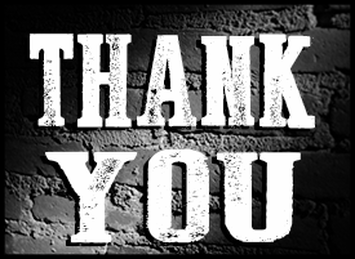
A big THANK YOU to those who contributed to the film, without whom this film would not have been possible.
Peggy Kendrick, Robert Kendrick, Cre8tive Works Inc, David Hannam
Carmen Pomares, John Burger
Donald Rupe, Tracy Arban, Bill Arban, Cory Dunn, Kimmy Vaughan
Joe Saunders, Donna Adamczyk, Rick Adamczyk, Megan Terry, Rebecca Ezell, Thor Einarr
Josh Rios
Nick Terry, Dorothy Zembaty, Marie Ikenbrandt
Jay Pastucha
Peggy Kendrick, Robert Kendrick, Cre8tive Works Inc, David Hannam
Carmen Pomares, John Burger
Donald Rupe, Tracy Arban, Bill Arban, Cory Dunn, Kimmy Vaughan
Joe Saunders, Donna Adamczyk, Rick Adamczyk, Megan Terry, Rebecca Ezell, Thor Einarr
Josh Rios
Nick Terry, Dorothy Zembaty, Marie Ikenbrandt
Jay Pastucha
